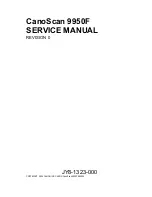
batteries, rechargeable batteries, or a rechargeable scanner
battery pack) or external AC or DC power (using optional
adapters).
Your AE55H scanner can receive the following
frequency bands:
26-54 MHz
68-88 MHz
137-174 MHz
380-512 MHz
For a list of the frequency ranges in the ten preprogrammed
search bands, see “Search Bands”.
PREPARATION
POWER SOURCES
You can power your scanner from any of four sources:
· Internal batteries (not supplied) with the provided battery
holder
· A rechargeable scanner battery pack (not supplied)
· Standard AC power (using an optional AC adapter)
· Vehicle battery power (using an optional DC cigarette-lighter
adapter)
You can power your scanner from six AA batteries. For the lon-
gest operation and best performance, we recommend alkaline
batteries. You can also power the scanner using a rechargea-
ble scanner battery pack or rechargeable nickel-cadmium bat-
teries, and recharge it as you use the scanner.
Caution: Do not mix old and new batteries, different types of
batteries (standard, alkaline, or rechargeable), or rechargeable
batteries of different capacities.
Notes:
· The PWR jack lets you connect an external AC or DC adap-
ter to operate the scanner. Connecting an adapter to PWR
disconnects the internal batteries. You can use the PWR jack
with either non-rechargeable or rechargeable nickel-cadmium
batteries installed.
· The CHG jack lets you connect an external AC or DC adapter
to operate the scanner. The internal batteries remain connec-
ted when you connect an adapter to CHG, and get recharged
when you connect a charger.
Warning: Never use the CHG jack with non-rechargeable bat-
teries! If you try to recharge non-rechargeable batteries, they
could get very hot and explode.


































